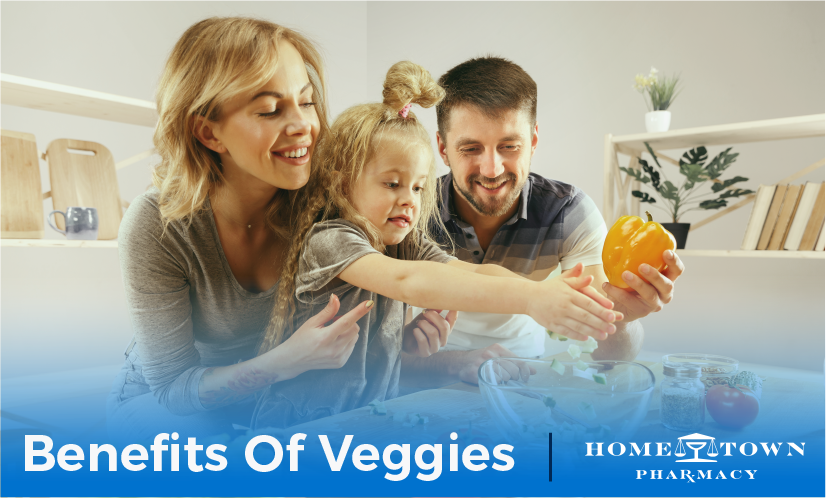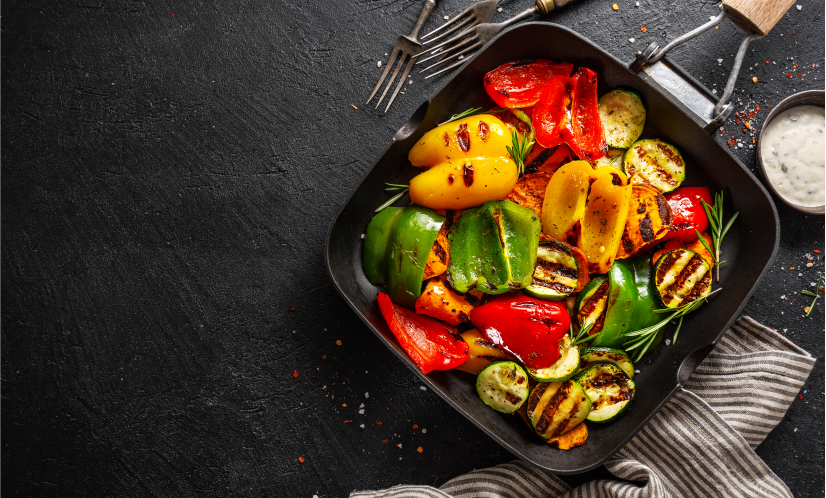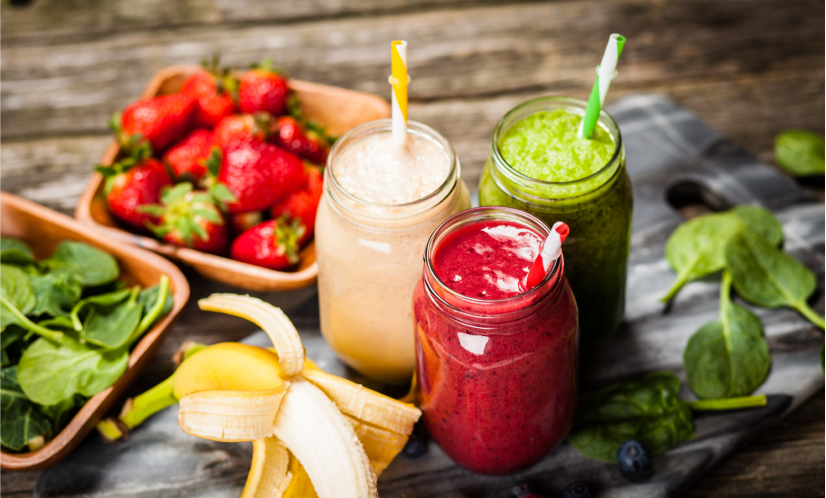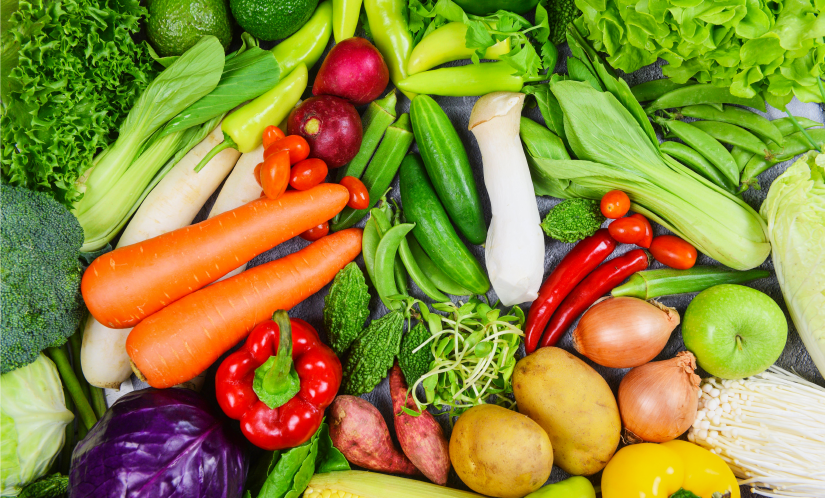

The Benefits Of Eating Your Veggies!
Do you LIKE veggies?? Or, not so much…
The USDA recommends 5-9 servings of fruits and vegetables per day or more!! According to US Dietary Guidelines this equals 1 to 1 ½ cups of fruit and 2 to 2 ½ cups of vegetables daily.
I don’t know about you, but fruits are pretty easy to add to my diet. I mean, strawberries, blueberries, apples, grapes - what is there NOT to like? It’s like eating dessert, without all of the calories…
Now veggies? For me, that’s another thing altogether. I LIKE a lot of vegetables, but honestly, veggies are not a food I love, nor something I crave or look forward to - most of the time.
Diets high in vegetables are widely recommended for their health-promoting properties. They have historically held a place in dietary guidance because of their concentrations of vitamins, minerals, phytochemicals, and dietary fiber.
Of course, when we are talking about the health benefits, ideally we are talking about fresh, organic, locally grown vegetables preferably minus those harmful pesticides. Understandably, these are only available in season so the local grocery store is your next best option for fresh vegetables. Raw, cooked and frozen vegetables are all good options, with canned vegetables likely your last option due to salt content, processing, etc.
This is info we’ve all heard and know and a lot of us really try hard to incorporate into our lives - because we understand the health benefits which include better digestion, weight management, satiety, longevity and disease prevention. These are pretty great reasons to eat our veggies!! If we know we are going to live longer, feel better and fit into those jeans we still have from high school - why isn’t it easy?
Some reasons we don’t like vegetables is because we weren’t fed them as children and never developed a taste for them. If we didn’t like them, parents moved onto another food we did like and would eat! Happy baby, happy life! Good news is - our taste buds change and what we may not have liked as a child we may like now. Like brussel sprouts!! I never liked them until about two years ago, when I was given a free appetizer at a restaurant - The WAY you cook vegetables can make a huge difference in how they taste!!
Another reason, we may not like veggies is because of the texture. I cannot eat a raw tomato or cucumber because I don’t like the feel of it in my mouth. Ick. BUT, I do LOVE tomatoes COOKED in food. And I love the SMELL of cucumbers - this has some health benefits right??
Additionally, let’s be honest, vegetables are a lot of work! Whether you are eating them raw or cooking them, you have to cut them up, take out the seeds, take off the skin (sometimes) which takes forever and when you are hungry and want immediate gratification, it takes too long!!
The thing is - I know that all of the obstacles or dislikes when it comes to incorporating more vegetables into my diet are worth the reward. I feel better. Bottom line.
Below are a few ideas to help make a veggie “liker” become a veggie “lover” or at least add more vegetables to their daily diet:

Add MORE flavor to vegetables:
• Roast your veggies in some olive or avocado oil and sea salt - it brings out the flavors.
• Grill them! Skewer them up or place them in foil with some olive oil, garlic, sea salt. Delicious!
• Instead of using olive oil, try coconut oil for some of the bitter vegetables, like broccoli, brussel sprouts or kale - with some lemon, cardamom or cinnamon to add a different, sweeter flavor.
• Mix veggies together for a variety of flavors and textures - sometimes this is what your taste buds need to accept them. One of my favorite combinations is corn, black beans, tomatoes diced, zucchini, and sweet potatoes all roasted (not the beans) with olive oil, cardamom, garlic and salt and tossed over a bed of spinach or in a bowl with ground turkey.
• Cut up veggies - broccoli, cauliflower, colorful pepper, carrots - as soon as you get them home from the grocery store, put them in storage bags or containers for an easy grab and go snack and dip them in a flavorful hummus. Delish!!

To add more vegetables without actually being able to taste the difference:
• Experiment with a variety of spices and if all else fails, add a little bacon and a pinch of parmesan cheese!!
• Add puréed veggies to your pasta sauce.
• Mash cauliflower or carrots into mashed white potatoes or just mashing cauliflower with garlic, butter or cream cheese and parmesan cheese - tastes just like potatoes.
• Blend baby spinach into a fruit smoothie.
• Top your pizza with mushrooms - or add a cauliflower crust.
• Mix half spaghetti noodles with half zucchini noodles or zucchini lasagna - tastes the same as regular pasta.
• Add chopped mushrooms or carrots to your hamburger patty - yummy!!

Nutrients:
Most vegetables are naturally low in fat and calories. None have cholesterol. (Sauces or seasonings may add fat, calories, and/or cholesterol.)
Vegetables are important sources of many nutrients, including potassium, dietary fiber, folate (folic acid), vitamin A, and vitamin C.
Diets rich in potassium may help to maintain healthy blood pressure. Vegetable sources of potassium include sweet potatoes, white potatoes, white beans, tomato products (paste, sauce, and juice), beet greens, soybeans, lima beans, spinach, lentils, and kidney beans.
Dietary fiber from vegetables, as part of an overall healthy diet, helps reduce blood cholesterol levels and may lower risk of heart disease. Fiber is important for proper bowel function. It helps reduce constipation and diverticulosis. Fiber-containing foods such as vegetables help provide a feeling of fullness with fewer calories.
Folate (folic acid) helps the body form red blood cells. Women of childbearing age who may become pregnant should consume adequate folate from foods, and in addition 400 mcg of synthetic folic acid from fortified foods or supplements. This reduces the risk of neural tube defects, spina bifida, and anencephaly during fetal development.
Vitamin A keeps eyes and skin healthy and helps to protect against infections.
Vitamin C helps heal cuts and wounds and keeps teeth and gums healthy. Vitamin C aids in iron absorption.

Health Benefits:
As part of an overall healthy diet, eating foods such as vegetables that are lower in calories per cup instead of some other higher-calorie food may be useful in helping to lower calorie intake.
Eating a diet rich in vegetables and fruits as part of an overall healthy diet may reduce risk for heart disease, including heart attack and stroke.
Eating a diet rich in some vegetables and fruits as part of an overall healthy diet may protect against certain types of cancers.
Adding vegetables can help increase intake of fiber and potassium, which are important nutrients that many Americans do not get enough of in their diet.


.jpg?ext=.jpg)





Comments